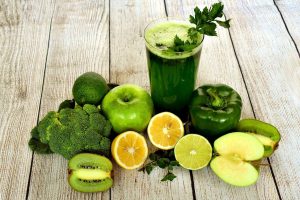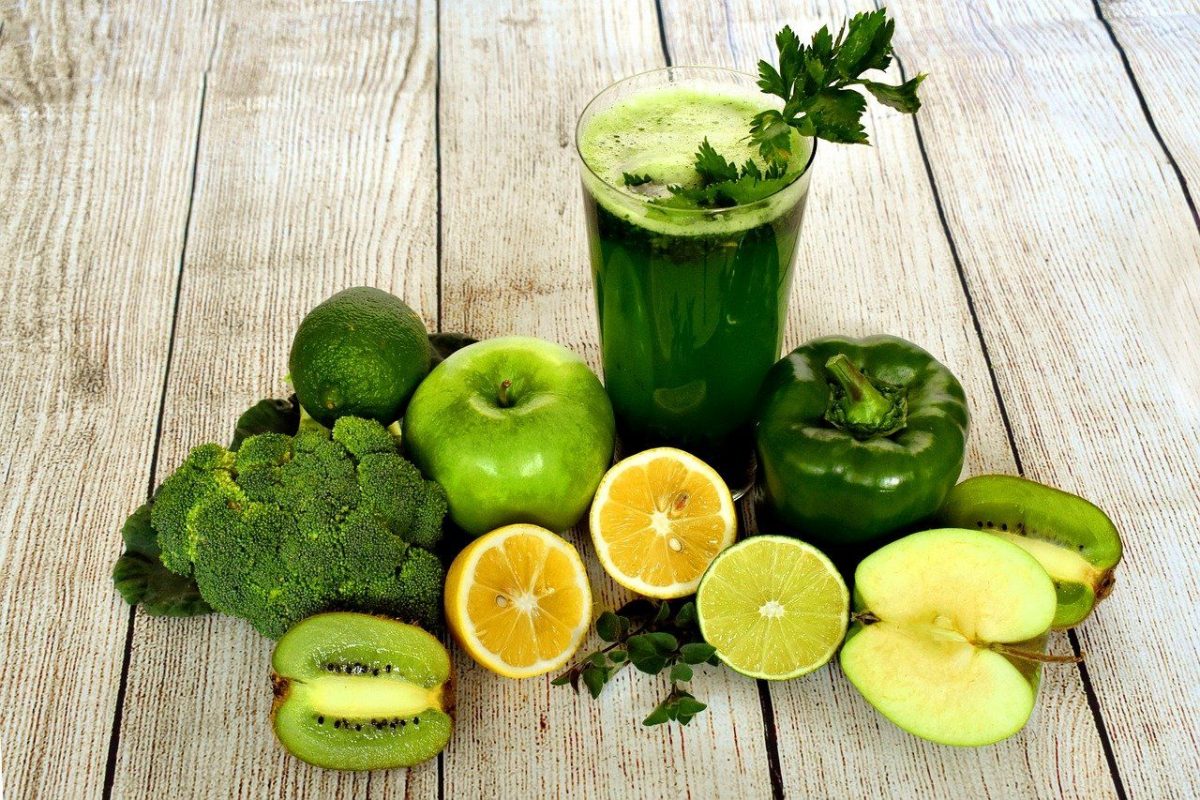Everything in life is a question of balance, but perhaps one of the fundamental points of balance is that which tries to maintain our organism healthy on a daily basis. The human body by nature needs to be in precise conditions of internal balance to enjoy well-being and good health.
The importance of keeping the body alkaline
When it comes to your health, your overall pH balance is extremely important. This determines whether your body is in a healthy state of alkalinity or excessively acidic and possibly at risk. Experts say that disease cannot exist in an alkaline state. Hence the importance of finding ways to lower the acidity in your pH as a priority.
The pH is present in the body in body fluids: saliva, urine, blood. Keeping it balanced is essential for the proper functioning of the organs. And the way the human body naturally regulates acidity or alkalinity levels is through three pathways: breathing, the kidneys and eating.
On the pH scale, 14 is fully alkaline, 7 is neutral and 0-6 is acidic. Although not all fluids in our body have the same pH level to maintain their balance, the blood must always remain at a slightly alkaline pH of 7.3-7, otherwise the cells would get sick. This is why our body will do the impossible to maintain this balance.
An acidifying lifestyle
We always hear that the type of diet we follow affects our blood acidification levels but when we lead a lifestyle dominated by stress, chemicals, negative thoughts and no sport our body has to work harder to achieve a stable internal condition. All these factors directly affect our pH level.
We know that food is not the only thing that feeds our cells and just eating well does not guarantee us to be healthy. So we must treat health from a more holistic point of view, much more extensive, always considering the most primary foods, our personal relationships and our emotions. A negative feeling such as sadness, hate, fear, jealousy, stress or extreme tiredness can cause more acidification in the body than eating a doughnut.
How does the acid-base balance work?
All the cells that make up our organism need to be fed, eliminate waste and renew themselves constantly. In this sense, blood has two vital functions:
- To bring to all cells the oxygen and nutrients they need
- Removing the toxic and acidic residues produced as a result of the metabolism of these nutrients
These toxic residues are evacuated from the body through natural elimination pathways : kidneys, intestines, skin and lungs. It is therefore essential to keep our natural “filters” clean, because if they become clogged, problems begin to arise.
When a filter is not clean and consequently cannot eliminate toxic waste, such as uric acid, our body will begin a battle to prevent such acidic waste from entering the bloodstream and changing the pH of the blood.
The “survival” mechanism that first activates the body is to take calcium from the bones and inject it into the blood to neutralize the pH again, because calcium is one of the most alkalinizing minerals we have in our body.
This should not be a problem if it happens from time to time as the body is prepared for it. But if it becomes a habitual state that is prolonged in time, it will lead us to serious health problems, such as bone decalcification and osteoporosis.
Most common symptoms of acidosis
When our body is not kept in a slightly alkaline state we can suffer a condition called acidosis.
Some of theses diseases are communly linked to :
- Cardiovascular conditions
- Weight gain, obesity, and diabetes
- Excess load on the kidneys and stone formation
- Wear and tear and loss of muscle mass
- Immunodeficiencies
- Hormonal imbalances
- Premature aging
- Osteoporosis
- Tooth decay
- Joint pain, muscle pain and gout
- Lack of energy and chronic fatigue
- Slow digestions
- Fungus, infections and viruses
- Sadness, tendency to depression, nervousness and irritability
- Acid saliva, swollen and sensitive gums, high irritation of the tonsils and pharyngitis.
The best tips to improve your body pH
Although food is not everything when it comes to preventing our body from becoming too acidic, it does play a key role. There are foods that will play against us and foods that will help our body stay in a more alkaline state.
 What to do :
What to do :
- Increase consumption of green leafy vegetables and consume a green shake daily.
- Adopt the good habit of drinking a glass of warm water with lemon on an empty stomach every day. Citric acid is a great alkalizer despite being acidic.
- Increase the consumption of fruits and vegetables, if possible those with green leaves and eat them raw.
- Increase the consumption of high quality water, if possible purified water.
- Choose to clean your home with natural products such as baking soda, lemon and vinegar.
- Increase food of vegetable origin and include small portions of food of animal origin, but let the animal be fed with grass.
- Begin to include in the diet foods such as wheat grass, barley, seaweed, cayenne and spirulina.
- Prepare daily a glass of water with a teaspoon of baking soda and drink it.
- Alkalizing foods are those containing a good dose of calcium, magnesium, sodium and potassium, like most fruits and vegetables. So our best alkaline allies to maintain the balance of the blood are par excellence green juices and smoothies, sprouts, some seeds, vegetables and especially those with green leaves.
What to avoid :
- Avoid consumption of processed and fried foods.
- Avoid the consumption of refined foods such as sugar and flour.
- Generally, foods rich in saturated fats, sugars, refined flours and proteins are acidifying. Especially foods of animal origin, such as meat or dairy products and processed and industrialized products.
List of alkalizing vegetables
Spinaches
As with all green foods, spinach is a great source of chlorophyll, a powerful alkali and blood builder.
Very high in vitamin K, vitamin A, manganese, magnesium, folic acid, iron, vitamin C, vitamin B2, calcium, potassium, vitamin E, and rich in fiber. One of the most alkaline foods in the garden, ideal for eating every day, both raw and cooked, ideal in salads or to accompany your vegetables.
Cucumber
It is one of the most alkaline foods, with a high water content of up to 95%, like no other vegetable, so it is highly moisturizing. It also contains enormous amounts of antioxidants that are highly beneficial to our health and the fight against free radicals. The versatility of cucumber is ideal as a base for almost soups, juices and green smoothies, making your dishes alkaline and nutritious as well as delicious. Also very rich in alkaline minerals such as calcium, iron, phosphorus, potassium, magnesium, selenium, copper, manganese, iron and zinc. And vitamins K and C, a little less vitamin A and the vitamins of the B group.
Celery
Like cucumber has a high alkalinity and high water content, which makes it ideal as a base stock for your favorite soups.
It is worth mentioning its great amount of vitamin C, helping our immune system and coumarins that help fight against several types of cancer.
It also has anti-inflammatory properties, helping us with arthritis, osteoporosis, asthma, etc
If you are on a weight loss diet, you will be happy to know that this alkaline food contains large amounts of potassium and sodium so it is very diuretic and will help you get rid of accumulated fluids and their toxins.
Brocoli
If you want to live with health and vitality, you should include broccoli in your diet at least 4 times a week. It has proven to be a great ally in the fight against cancer, stimulates the digestive system, cardiovascular, and helps detoxify the body and skin. Excellent for our immune system, it also has anti-inflammatory properties, and is rich in antioxidants.
Eaten steamed or raw it is a very alkaline food. Recommended in salads, juices, smoothies, steamed soups with other vegetables. Either way…look for a way to include it in your dishes.
Avocado
Eat as much as you can, in salads and smoothies. One of the most alkaline foods to include daily, although it has had a bad reputation for its high fat (85% of its calories come from fat) has been a great misunderstanding, misinterpreted, since this fat is the good kind and will not make you gain weight.
Very rich in omega 9, it will even help you keep your cholesterol in check and raise your high density lipoprotein (HDL) levels while reducing low density lipoprotein (LDL), also known as the “bad” cholesterol.
In addition, these omega oils help speed up your metabolism, so you’ll spend more calories and become a good ally in weight loss… despite their fame.
Other alkalizing vegetables
Alfalfa, barley grass, beet leaves, beets, cabbage, carrot, cauliflower, green beans, chlorella, dandelion, candy, edible flowers, eggplant, fermented vegetables, garlic, kale, kohlrabi, lettuce, mushrooms, mustard leaves, onions, peas, peppers, squash, radishes, turnip greens, spirulina, sprouts, sweet potatoes, tomatoes, watercress, wheat grass, wild green leaves such as nettle and dandelion.
Alkalizing fruits
There are also fruits with alkalizing properties. Here is a list:
Apple, apricot, banana, berries, red berries, cantaloupe, sour cherries, fresh coconut, raisins, grapes, grapefruit, melon, lemon, lime, melons, nectarine, orange, peach, pear, pineapple, raisins, raspberries, rhubarb, strawberries, tangerine, tomato, tropical fruits, umeboshi plums, watermelon, grapefruit and lime.
The way food is prepared and cooked also influences the pH of our body.
To conclude
Lack of consumption of alkaline foods could cause acidosis.
Food is a fundamental part of our health, therefore, it is very important to consume products that benefit our body, such as alkaline foods, so that we can maintain a balance.
To be more certain of what benefits your body and which alkaline foods are most beneficial to you, you can consult your doctor, who will surely also tell you why the alkaline diet benefits your life.
